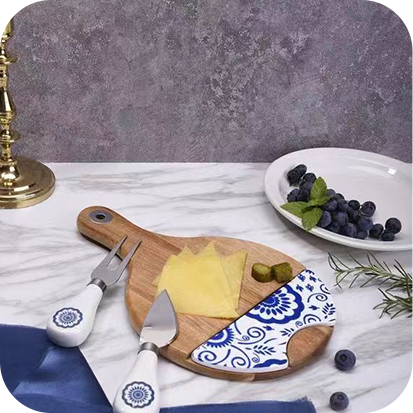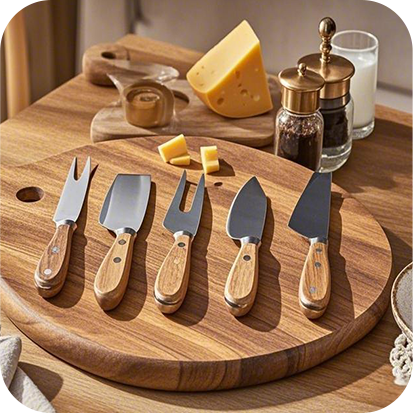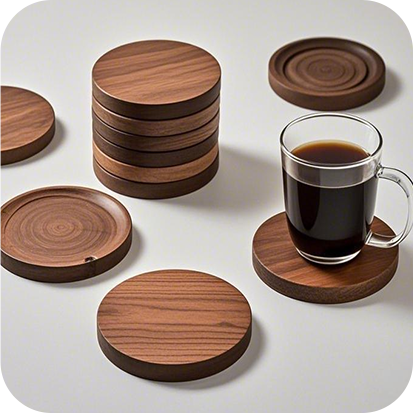How to Identify a True Food Grade Cutting Board Supplier
How to Identify a True Food Grade Cutting Board Supplier
In today’s health-conscious and quality-driven market, identifying a reliable food-grade cutting board supplier is essential for retailers, restaurants, and kitchenware distributors. Whether you are purchasing for resale or direct use, the supplier’s commitment to safety, quality, and ethical practices can directly impact your brand’s credibility and consumer trust.
1. Verify Material Authenticity and Certifications
The first and most vital aspect is the material. A true food-grade cutting board should be made from high-quality, safe materials such as Acacia wood. These materials should be treated without harmful chemicals and be compliant with food safety regulations.
Look for verifiable certifications like NSF, FDA, or ISO that confirm the supplier’s commitment to health standards. Without such certifications, claims of “food-safe” remain unsubstantiated.
2. Examine the Manufacturing Process
A supplier that maintains transparency in their manufacturing process is more likely to produce consistently high-quality cutting boards. Ask for documentation on:
- Raw material sourcing
- Sanitation protocols
- Chemical treatments or finishes used
A reputable supplier should be able to explain their process and provide proof that their products meet safety and environmental guidelines.
3. Inspect Product Features
Today’s cutting boards are more than flat wooden surfaces. The inclusion of modern features tailored to user needs is a hallmark of a premium supplier. For example:
- A Kitchenware safe on-demand production Acacia wood Serving board shows that the supplier can adapt to varying inventory needs without compromising safety.
- The Microwave safe Engraved Acacia wood Cheese board reflects a commitment to functional versatility and design aesthetics.
- A Kitchenware safe adjustable Acacia wood Prep board demonstrates an understanding of professional kitchen dynamics and ergonomic design.
4. Evaluate Customization Capabilities
Reliable suppliers should offer customization services that include:
- Custom branding
- Laser engraving or printing
- Size and shape modifications
- Packaging options
Customization enhances a product’s market value and helps businesses create a unique brand presence. Ask to see samples or case studies of previous custom projects.
5. Analyze Supply Chain Transparency
Transparency in sourcing and delivery is a key indicator of a reliable supplier. Look for suppliers that provide:
- Clear lead times
- Trackable shipping options
- Ethical sourcing certifications
- Responsiveness in communication
This information allows you to plan inventory and maintain customer satisfaction without the risk of delays or quality inconsistencies.
6. Customer Support and After-Sales Services
The relationship with a supplier doesn’t end after delivery. Reliable suppliers offer continued support, including:
- Easy returns or replacements
- Product warranties
- Technical support or consultation
- Clear channels for inquiries
This commitment reflects the supplier’s confidence in their product and their dedication to long-term business relationships.
7. Customer Reviews and Testimonials
Finally, consider the experiences of other buyers. Authentic reviews and case studies can provide real insight into:
- Product longevity
- Supplier responsiveness
- Actual vs. promised quality
Seek third-party platforms or ask for client references to gain a full picture of the supplier’s reputation.
Are you ready to partner with a trusted, quality-first supplier of food-grade cutting boards? Discover our range of certified Acacia wood boards and benefit from tailored solutions that match your exact kitchenware needs. Contact us today to explore your customization and wholesale options!
SEO Keywords: Kitchenware safe on-demand production Acacia wood Serving board, Microwave safe Engraved Acacia wood Cheese board, Kitchenware safe adjustable Acacia wood Prep board
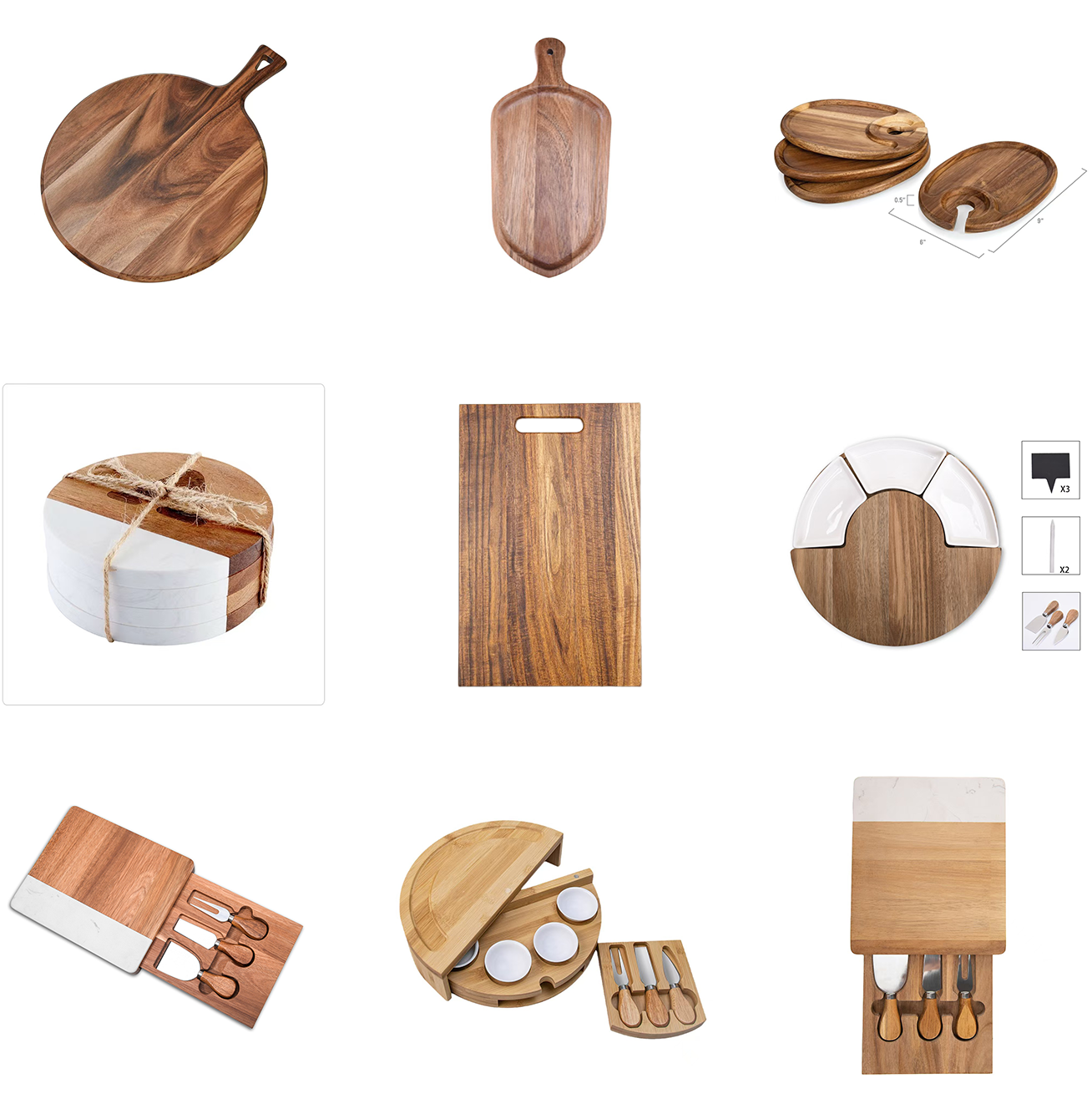
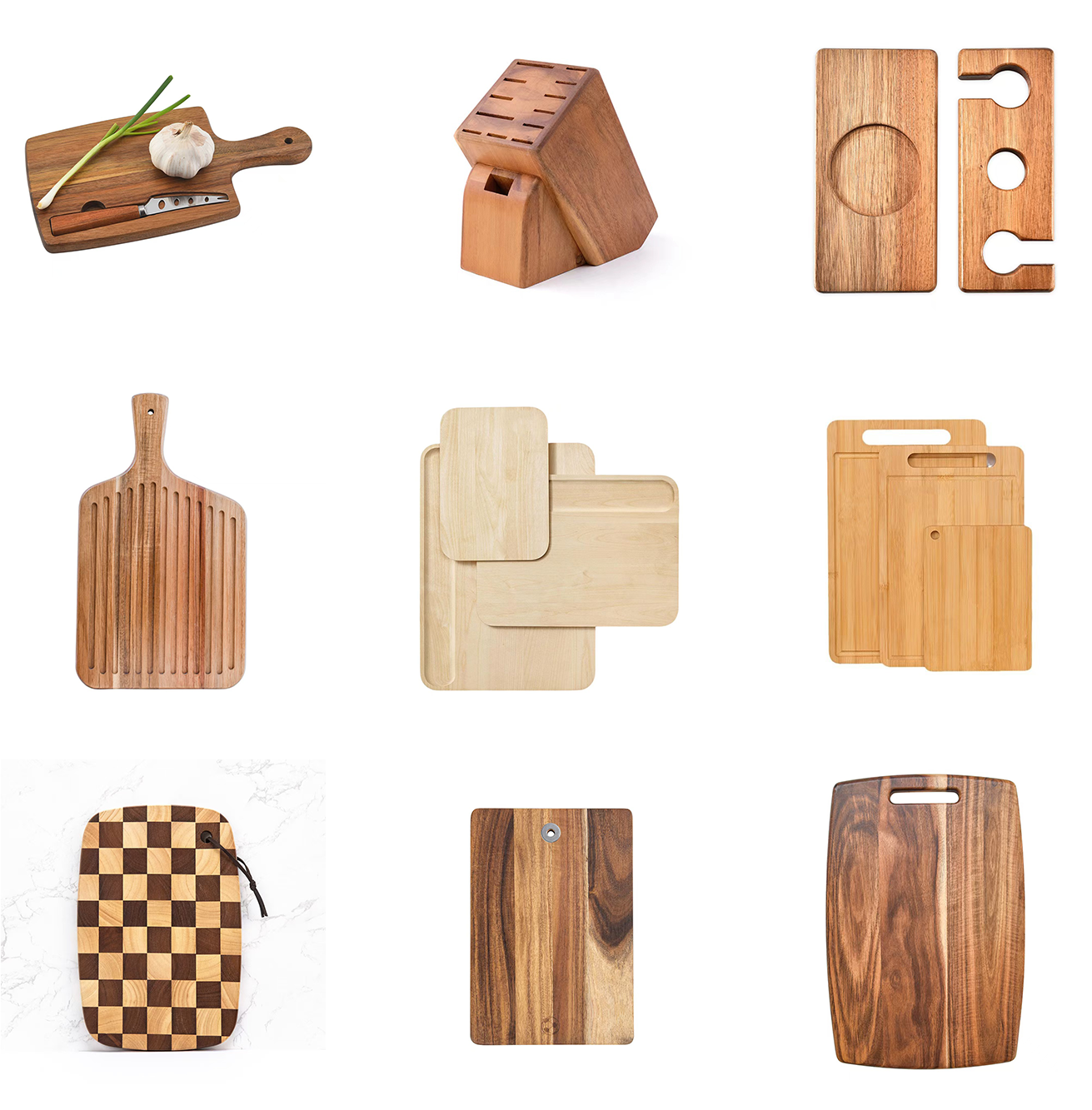
Yangjiang Cuthaven Kitchenware Co.,Ltd
Yangjiang Cuthaven Kitchenware Co.,Ltd.
specializes in the production and export of high-quality metal and wooden kitchenware. With over 16 years of experience in the industry, we have established ourselves as a trusted partner for businesses worldwide.














